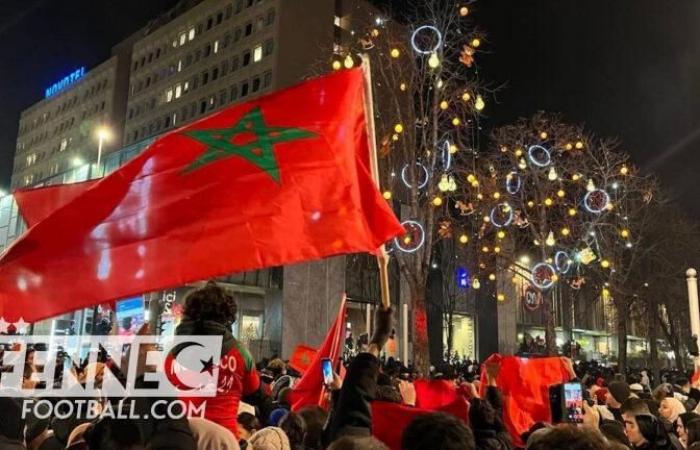Algeria Football– Moroccan football, on the rise thanks to the remarkable performances of its national teams and the constant improvement of its sports infrastructure, is facing an acute financial crisis which affects several clubs in the first two divisions of the professional championship. Behind this showcase of success lies a very different reality, marked by growing debts and financial tensions.
Many Moroccan clubs struggle to balance their annual budgets, mired in deficits which accumulate from year to year. This situation puts managers under constant pressure, unable to meet the basic needs of players and technical staff. Delays in the payment of salaries and bonuses are commonplace, and financial conflicts are increasing.
The situation is particularly difficult for players, who often find themselves in precarious situations. A recent case caused a stir on social networks: a player from a first division club sent a desperate message via WhatsApp to the president of his club. In this message, widely shared online, the player wrote:
“Hello Mr. President, I have not eaten anything since yesterday. Please, can you give me an advance on my salary or signing bonus? I have no one to help me in this town. Do something for me! »
This poignant message has rekindled the debate on the difficult conditions in which certain players operate within a championship which nevertheless claims to be professional.
Moroccan football authorities powerless in the face of the crisis
The debt problem is not new in Moroccan football, but it is getting worse over time. Despite the efforts made by the Royal Moroccan Football Federation (FRMF) and the Competitions Commission to regulate club finances, the measures taken have not been enough to stem the problem. Late payments lead to an increase in disputes, not only at the national level, but also with international bodies such as FIFA and the Court of Arbitration for Sport (CAS).
This situation contrasts sharply with the progress made by Moroccan football on the international scene. The exploits of the national team during major competitions, the development of sports infrastructure, and the success of Moroccan clubs in African competitions demonstrate a positive dynamic. However, this image of success masks often chaotic financial management within clubs.
Also read:
The recourse of the opponent of the Algerian team doomed to failure






